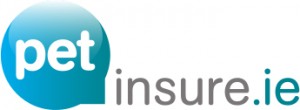
You might use a number of existing lists to build the data for a new campaign. Customer purchase history and content marketing responses are typical sources. However, at some point, you are also likely to need some fresh new data to help you expand your customer base.
Recently, we looked at how sales intelligence data could be useful for evolving the outbound campaigning strategy, for growing your customer base, and driving improved conversion rates in your call or contact centre. There are a number of reasons why data provided by sales intelligence platforms (SIPs) appears to be superior to that provided by list brokers. However, we think it is worth comparing the relative merits of each in a little more depth.
The table below summarises a number of the key points.
A comparison of Marketing Data Sources
List brokers v Sales Intelligence Platforms
| Feature | List Brokers | Sales Intelligence Platforms |
|---|---|---|
| Data Source | Third-party databases, compiled from various public and private sources. | Proprietary databases built through web scraping, integrations, and partnerships. |
| Data Coverage | Broad reach across industries and demographics. May include outdated or inaccurate data. | Focused on specific industries or buyer personas. Generally higher data quality and accuracy. |
| Cost | Generally lower upfront costs but ongoing fees for data purchases | Typically subscription-based with access to all data in the platform. |
| Targeting Options | Basic filters based on demographics, interests, and purchase history. Limited customization options. | Advanced filtering on firmographics, technographics, intent data, and behaviour. Targeting may be highly customisable. |
| Data Freshness | Data refresh frequency varies depending on the broker. | Real-time or near real-time data updates for leads and insights. |
| Compliance | Data compliance varies depending on the origin and sourcing methods. Buyer responsible for ensuring compliance. | May have built-in compliance features and tools to ensure GDPR adherence. However, it is a grey area. |
| Scalability | Limited ability to scale data volume on demand. | Potential for scalable data and insights as platform usage increases. |
| Ease of use | Generally requires manual data management for acquisition and integration with marketing tools. | Self-service interfaces and pre-built integrations with popular CRM and marketing automation platforms. |
| Customisation | Limited ability to customise data sets or targeting criteria. | Powerful analytics and segmentation tools for building custom data sets and profiles. |
| Value Added Services | Limited to data access and basic segmentation. | Value-added services like lead scoring, predictive analytics, and campaign optimisation. |
Essentially, this suggests sales intelligence platforms (SIPs) are in many ways superior, and for some B2B companies, they have become powerful tools for leveraging massive datasets to identify and qualify leads for fueling their outbound call centre campaigns. However, they are not without their critics and concerns have cast a shadow over their potential.
Three of the key concerns centre on:
There is a clear need to mitigate these concerns and bring SIPs into line with established regulations, best practice guidance and generally accepted ethical standards. Whether it is a SIP data provider or a SIP data user, every business has to demonstrate good governance if it is to avoid reputational damage and the potential for financial penalties.
This creates some key challenges for SIPs:
The efforts of marketing industry trade bodies, improving the design of SIP technology to observe compliance, and regular auditing are important steps in combating the criticisms that have become attached to SIP data.
Collaboration between SIP providers, regulators, and data owners (individuals) is crucial to developing responsible data practices that balance business needs with data privacy rights.
As SIP technology matures, some of the likely outcomes that we may see include increased regulation, greater scrutiny of B2B data practices, stricter enforcement and, in cases of non-compliance, increased fines.
For businesses that want to drive greater success in outbound campaigning, choosing a reputable SIP with strong data protection practices and clear communication about data sources and usage is critical. While concerns about SIP data privacy remain, it is imperative that efforts to leverage sales intelligence platform data are in compliance with GDPR regulations in the UK and the EU and with similar regulatory frameworks globally.
However you choose to build the lists that you use to drive your outbound campaigning, your telesales operation is more efficient and adheres to the regulatory requirements with Quvu.
Quvu lets your agents be more productive through the use of the fastest AI predictive dialler on the market, getting through more outbound calls quicker. It does this without breaking the regulatory requirements for frequency and dropped calls.
Book a personalised demo to see what Quvu can do for your contact centre. Or get in touch, call us on 01 556 3222 or email sales@quvu.co.uk




